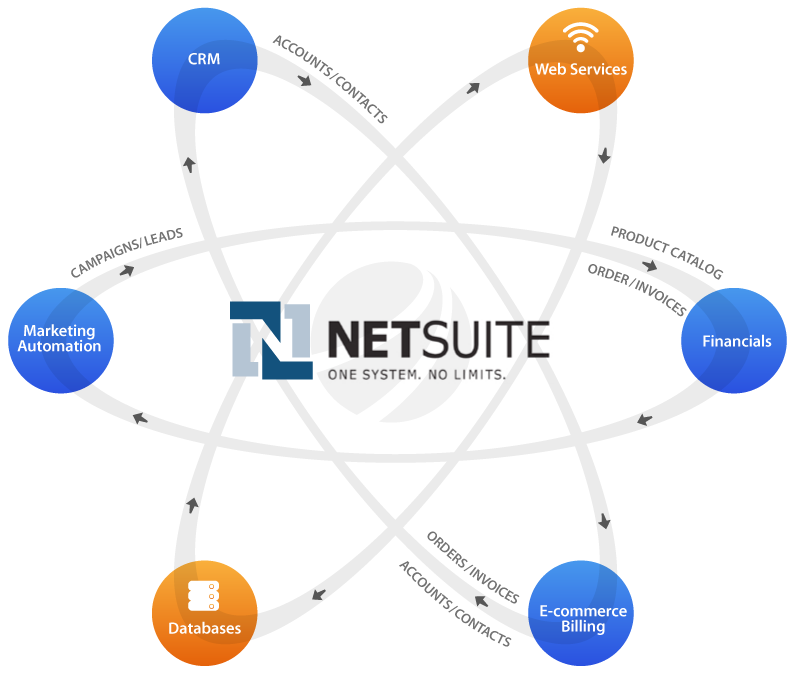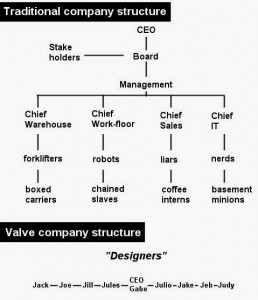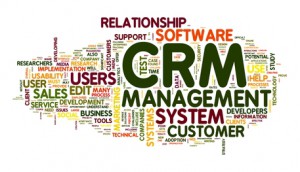The Importance of a Good Organizational Structure
A good organizational structure allows an organization to thrive in many ways. Having a good organizational structure, allows the company to identify additional talent needed to take on any additional projects and to meet project deadlines. Since a good organizational structure ensures that the right people are in the right places, it allows for the company to be more efficient and put its best foot forward. Roles and job descriptions are clearly defined, which eliminates confusion as well as redundancy. This helps for goals to be achieved and helps with job coordination. Having a chain of command in place, allows for information to be passed more efficiently. These are some of the many benefits of having a good organization structure.
What other advantages do organizations reap from having a good organizational structure? Are there any disadvantages?
http://smallbusiness.chron.com/importance-good-organizational-structure-3792.html
Presentation Skills Are Critical For Career Success
An article I recently read discussed how many professionals in corporate America fear of presenting that they are desperate to avoid it. According to the article, “Poor presentation skills mean that leaders fail to inspire their teams, products fail to sell, entrepreneurs fail to attract funding, and careers fail to soar. That seems like a big price to pay for neglecting such a basic skill that anyone can improve upon.” Practicing makes perfect and a good way to practice is to watch great presentations such as “TED talk.”
Not only students fear of giving presentations but also professionals in corporate America. What are other suggestions to practice giving a better presentation? How important do you think presentations really are in the “real world?”
http://www.forbes.com/sites/carminegallo/2014/09/25/new-survey-70-percent-say-presentation-skills-critical-for-career-success/
The Next Big Technological Hub
In class this week, we talked a lot about the internal structures of organizations, but what about the geographic location of it’s headquarters? We know that some sort of distribution is necessary to create redundancy (safety) for company data, but where companies locate it’s central “hub” is completely up to them.
http://www.lasvegassun.com/news/2015/jan/26/next-silicon-valley/
In this article, it discusses the prospect of Las Vegas becoming the new Silicon Valley. The article states that there is 6 major factors that will either make or break Vegas’ future:
1) Education
2) Connectivity
3) Financial
4) Transportation
5) Culture
6) Tony Hsieh’s Downtown Project
With a lost cost of living, cheap travel, a plethora of tech start-ups and a world-renowned reputation (whether good or bad), do you guys think that Las Vegas has the potential to become the next big technological hub?
Is Having No Job Titles a Viable Organizational Architecture?
http://www.bloomberg.com/bw/articles/2012-04-27/why-there-are-no-bosses-at-valve
I’ve noticed that many of the most innovative IT companies seem to incorporate some seemingly unorthodox organization architectures. One of the prime examples of this is with Valve Corporation, in which there are no job titles. Whenever there is a new project, employees get to choose which aspect of the project they wish to work on. Valve employees appreciate this approach in that they can get their hands dirty in whichever aspect of the company they want. CEO Gabe Newell provided one example of an animator from the film industry who specialized in just mouth animations. But once he started working at Valve, quickly realized that he was longer confined to working on just mouth animations, but could instead work on whatever animation he wanted. This welcomes creativity among employees.
It may seem like this type of organizational architecture would result in not much work being done, or for there to be work that no one will choose to work on. However, Valve continues to create some of the most innovative and praised games, and their Steam market has proven to be an ingenious business model that benefits both the company and developers. Although not explicitly stated in the article, there are still employees who act as “managers” for projects. There may be no job titles, but there still needs to be some sort of structure and people who can keep track of the work being done.
What do you guys think of this type of organizational architecture? Is it always a viable option, or is it more suited for companies that strive to create innovative products and solutions? I personally think it’s a great approach for sparking innovation and creativity among employees, but also think that most employees will end up working on the same aspects of each project anyway. For example, in my group for this course, we each already have defined roles and divide the work to be done for each week, even though we could really work on whatever we want.
Cirque du Soleil Drives Creativity and Expansion with SAP Solutions
After reading the case study on Cirque Du Soleil, I wanted to learn a bit more about the business and specific systems that the corporation utilizes. What fascinated me the most had to be the aspect of how the business is essentially on wheels, and how they foster a successful company when on tour with some of the main systems being miles and miles away. Innovation and creativity play a huge factor in today’s thriving businesses, and it may seem as if for a business on wheels to be a difficult task, but this article proves the opposite. Being different as an organization does not hold Cirque back, but inspires them to continue to be different. As Olivier Gariepy, Senior Business Analyst at Cirque du Soleil said:
“Because creativity is the driving force of our company, we in IT need to be creative ourselves. We can’t turn down a creative idea because it doesn’t fit with our existing technology.”
The integration of SAP for Cirque was a task that most definitely was not simple and easy to implement, but is truly paying off now, saving outrageous amounts of money and allowing the business to be multitudes more efficient. “The implementation of SAP solutions has helped Cirque du Soleil optimize and review some of its business processes while collecting some valuable business data. And the next step is leveraging that data further.” It will truly be interesting to see what else the show will offer as times change and people’s interests evolve with culture and innovation.
If you would like to read more about the topic I found this article very interesting: http://sapinsider.wispubs.com/Assets/Case-Studies/2011/July/Cirque-Du-Soleil-Drives-Creativity-And-Expansion-With-SAP-Solutions
Why Big Companies Delay Using the Cloud for Some Applications

Many companies have a combination of on premise and cloud based ERPs, but according to the article by The Wall Street Journal, some bigger companies don’t want to make the full jump to the cloud. Some CIO that are hesitant to do it because of the amount of complexity involved in transferring everything to the cloud. Another reason for not moving critical systems to the cloud is because they are fearful of a crash due to a failure by third parties to manage servers or an unreliable internet connection. Which, if this problem persisted long enough, could possibly cause a company to go out of business. However, on the flip side, the article also mentions the benefits of working off the cloud instead of on premise. Saying that some companies prefer the cloud because they are tired of paying for upgrades and custom programming, which in the short run costs them more money than a monthly subscription fee that allows the company to use the saved money elsewhere.
With that said, my question is do you think that companies should switch completely over to the cloud or do you think that switching over to the cloud completely depends on the company? If so, what factors do you think go into that decision? Or do you think companies should have a hybrid system of on premise and cloud ERPs?
When should an Organization Implement a Global ERP
 Going global: Is it time to streamline your ERP?
Going global: Is it time to streamline your ERP?
Today in class we discussed the difference between IT many years ago and today where years ago in order to include IT in your business you needed to spend a lot of money implementing complex systems and today with software as a service and cloud models you just need a credit card and an idea. This got me thinking about when a business should switch from individual systems to an expensive ERP. As with many things, I believe it very much depends if an organization should use an ERP or continue with individual systems. When looking into what it depends on I found this article by NetSuite which has their recommendations on how you know your organization is ready for an ERP. NetSuite Inc. does sell ERP, CRM, and eCommerce software solutions so they are biased because they want you to buy their ERP, and the conclusion basically spells that out, but the article is in the educational materials section of their website and I believe the body of the article makes some good points.
The article focuses on organizations who have multiple locations in multiple countries and recommends ERPs to gain a more centralized management approach. The first subheading says that an organziation should implement one ERP system if they are duplicating ERPs or resources between officers or countries. At first this seemed like a logical conclusion, duplicating systems means more money spent and less sharing between offices or countries. This continues in the second point, if a company is manually reconciling accounting and finance information. Having all of the finance information in one place for the whole organization would make sense, especially when paired with their last point of a company struggling with many tax and legal issues. A single ERP could make filing taxes and organizing the financing of a company easier. I don’t, however, completely agree that a global ERP will fix all of an organizations problems, or that it won’t cause more problems. Having all of the decision making in a single are could cause legal and operational issues. Businesses in different countries run differently, be it culturally or legally. Having a once size fits all approach may do more harm than good. Take something like sales as an example. One country might do most of its sales remotely while another country sales are all done in person. When trying to implement an ERP with a single sales process this could cause issues.
Do you think a single ERP for a multinational company is the best approach? What benefits would the organization reap? Are there possible downsides? Do the benefits out way the downsides? When do you think an organization should implement a global ERP?
End of On-Premises ERP
We discussed a lot about the merits of both on-premises and cloud based ERPs, but according to Gartner, on-premises ERPs will be considered “legacy systems” by 2016.
The main argument from Gartner is that companies are seeking to lower IT costs and to increase flexibility. Additionally, on-premises ERPs created more value for consultancies that helped companies implement them than the companies themselves. The thought of an integrated ERP was great in theory, but many companies have failed to capture this supposed value. I don’t know if on-premises ERPs will be considered legacy by 2016 because many companies will be unwilling to abandon systems they’ve spent millions on, but I agree that they are on their way out, regardless of industry. Do you guys agree with Gartner’s assertion that on-premises ERPs will be considered legacy systems?
3 Ways CRM Improves Your Business Processes
According to CIO.com, the three ways CRM improves business processes are:
- The CRM System As a Smart File Cabinet – CRM systems make sure everyone in the organization is aware of the customer’s relationship history. The customer’s information is collected and organized.
- The CRM System for Collaboration and Coordination – CRM enables collaboration and coordination among various departments, which leads to better account management.
- The CRM System as Task Master and Process Drive – CRM adds tighter linkage with other systems and business processes, which increases the business’s efficiency.
What are the advantages of knowing the customer’s relationship history? What are the disadvantages?
Systems Thinking in the Public Sector
Africa: What Can Evaluators Learn From Complexity Science and Systems Thinking?
For the past few years, I have worked at a non-profit legal services provider. When I was reading the article about systems thinking that we were assigned for this class, I couldn’t help but think that although the idea made sense for information systems, it would never work in the some industries (namely in the legal field). Given the experience that I have working with lawyers, I couldn’t picture them ever looking at a problem holistically instead of drilling into the details because they are all very process-thinking oriented.
However, this article kind of served as a counter argument to my thinking. Here are public policymakers that are using systems thinking to integrate economic, social and environmental growth into a single ‘map of development.’ I think it’s cool that they were able to use systems thinking despite the fact that there is probably a significant amount of constraints when writing public policy, including (I’m assuming) a pretty strict budget. This article proves that systems thinking can be applied virtually any industry if you are willing to shift your mindset.







Recent Comments